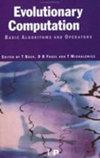Comparing Robot Controller Optimization Methods on Evolvable Morphologies
IF 3.4
2区 计算机科学
Q2 COMPUTER SCIENCE, ARTIFICIAL INTELLIGENCE
引用次数: 0
Abstract
In this paper, we compare Bayesian Optimization, Differential Evolution, and an Evolution Strategy employed as a gait-learning algorithm in modular robots. The motivational scenario is the joint evolution of morphologies and controllers, where “newborn” robots also undergo a learning process to optimize their inherited controllers (without changing their bodies). This context raises the question: How do gait-learning algorithms compare when applied to various morphologies that are not known in advance (and thus need to be treated as without priors)? To answer this question, we use a test suite of twenty different robot morphologies to evaluate our gait-learners and compare their efficiency, efficacy, and sensitivity to morphological differences. The results indicate that Bayesian Optimization and Differential Evolution deliver the same solution quality (walking speed for the robot) with fewer evaluations than the Evolution Strategy. Furthermore, the Evolution Strategy is more sensitive for morphological differences (its efficacy varies more between different morphologies) and is more subject to luck (repeated runs on the same morphology show greater variance in the outcomes).比较可进化形态上的机器人控制器优化方法
在本文中,我们比较了贝叶斯优化法、差分进化法和一种在模块化机器人中用作步态学习算法的进化策略。本文的动机是形态和控制器的联合进化,其中 "新生 "机器人也经历了一个学习过程,以优化其继承的控制器(而不改变其身体)。在这种情况下,就产生了一个问题:当步态学习算法应用于事先未知的各种形态(因此需要被视为无先验)时,它们之间的比较如何?为了回答这个问题,我们使用了一个包含二十种不同机器人形态的测试套件来评估我们的步态学习算法,并比较它们的效率、功效以及对形态差异的敏感性。结果表明,与进化策略相比,贝叶斯优化和差分进化能以更少的评估次数提供相同质量的解决方案(机器人的行走速度)。此外,进化策略对形态差异更为敏感(其功效在不同形态之间的差异更大),而且更容易受到运气的影响(在同一形态上重复运行的结果差异更大)。
本文章由计算机程序翻译,如有差异,请以英文原文为准。
求助全文
约1分钟内获得全文
求助全文
来源期刊

Evolutionary Computation
工程技术-计算机:理论方法
CiteScore
6.40
自引率
1.50%
发文量
20
审稿时长
3 months
期刊介绍:
Evolutionary Computation is a leading journal in its field. It provides an international forum for facilitating and enhancing the exchange of information among researchers involved in both the theoretical and practical aspects of computational systems drawing their inspiration from nature, with particular emphasis on evolutionary models of computation such as genetic algorithms, evolutionary strategies, classifier systems, evolutionary programming, and genetic programming. It welcomes articles from related fields such as swarm intelligence (e.g. Ant Colony Optimization and Particle Swarm Optimization), and other nature-inspired computation paradigms (e.g. Artificial Immune Systems). As well as publishing articles describing theoretical and/or experimental work, the journal also welcomes application-focused papers describing breakthrough results in an application domain or methodological papers where the specificities of the real-world problem led to significant algorithmic improvements that could possibly be generalized to other areas.
 求助内容:
求助内容: 应助结果提醒方式:
应助结果提醒方式:


